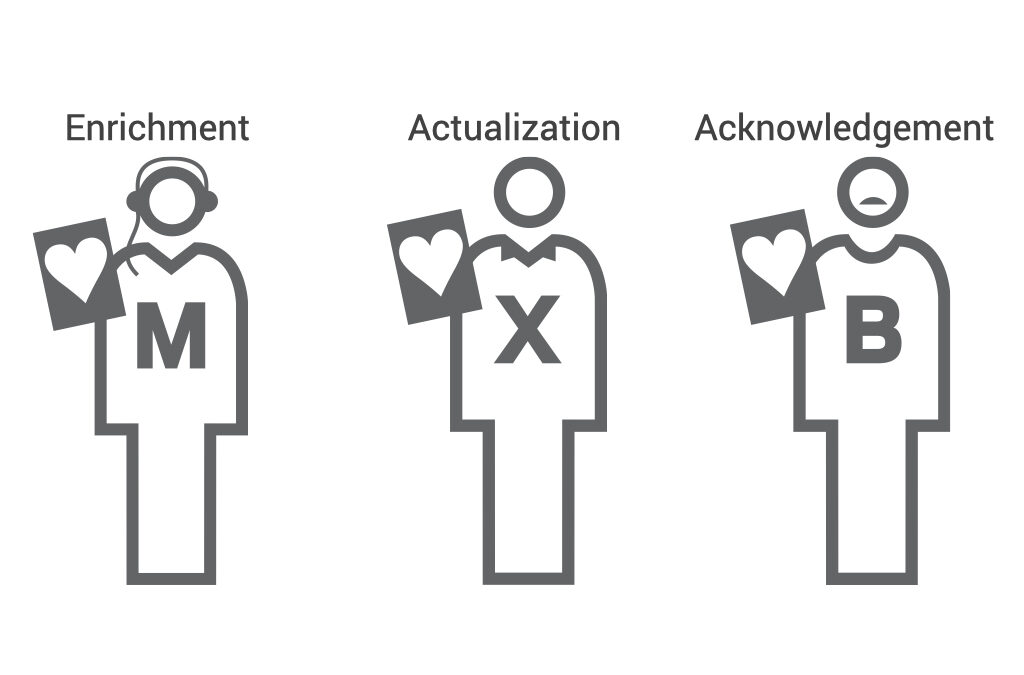Acts of management shape employer culture
Together, each action – big or small – of the employees of a company forms our impressions of a brand. And, each act of management in turn shapes employees’ impressions of their employer.
When a company’s brand – its culture and values that promote management behaviors – is relevant to employees, they are more engaged, provide better customer experiences and, thereby, ultimately enhance profitability. Recent research from CultureQ, Onesixtyfourth’s ongoing monitor of how cultural sentiment is impacting people’s relationships with brands, reveals that Millennials, Gen Xers and Baby Boomers each define their ideal employer culture differently.
What is your company culture?
Would you describe your company culture as similar to that of a Crew Team, a Country Club or a Boy & Girl Scouts Club? Your answer to this question may offer some insight to why you are or are not having a tough time attracting new recruits.
Boomers tend to prefer an office environment that is positive and healthy. A culture similar to that of a winning Crew Team: recognition and acknowledgement of hard work, a team-like work ethos, the individual strengths and skillsets that need to come together to do good work, accountability and pride that comes from a job well done.
Gen Xers on the other hand, are looking for a work environment that supports, enhances and thereby actualizes their lifestyle – what many envision as Silicon Valley workplace culture or what we think of as a Country Club. As detailed in a Onesixtyfourth blog last month, Our changing workplace: Cultural shifts are impacting expectations of ‘employer’ brands, they’re looking for daycare, pets at work, discounts, massages, free food, gyms on site and wellness programs.
And, perhaps not surprisingly, given that they were raised in the era of self-esteem and Happy Meal-like rewards, Millennials are seeking life enriching experiences at the office as much as a salary. Supportive supervisors, friends and community. All akin to the atmosphere nurtured by a Boy & Girl Scouts Club.
Rules for Engagement
Our research on Brand Citizenship continues to indicate that treating employees right regardless of the culture your company favors is the first stage on the road to being perceived a good corporate citizens. As with customers, it’s all about engagement.
Whether your workforce is mostly Millennials, Xers or Boomers some general rules for engagement apply:
- Connect employees through common values and purpose not stage in career or skillset
- Be a compassionate friend, not a faceless boss – personalize communications and give employees opportunities to take a break and interact with coworkers in more personal ways
- Acknowledge the reality of modern life by offering knowledge libraries and services that help employees juggle work with personal responsibilities and challenges
- Mobilize employees behind sustainability and doing good; invite them to co-create initiatives with you
- Foster stewardship of communities important to your employees and focus on initiatives where you can really make a difference


